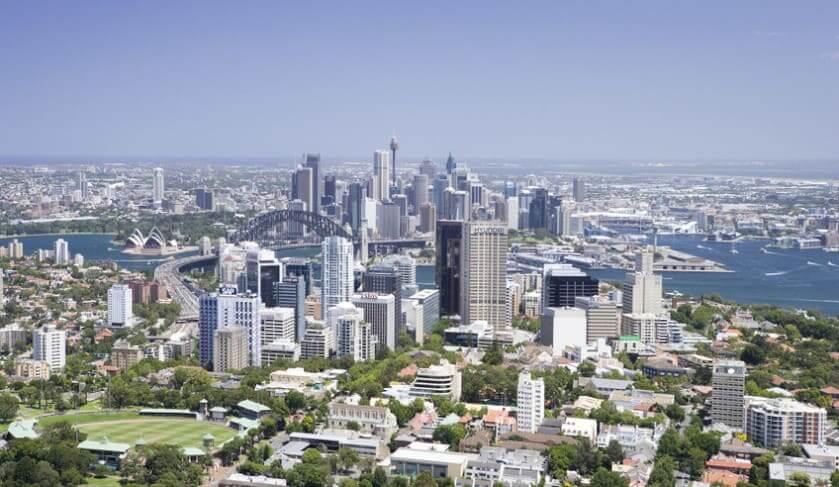Don’t sell your Sydney properties, experts say
A lot of investors are looking to sell their assets in Sydney in order to avoid bearing the brunt of the softening market, but experts are firm on keeping properties in the capital city. Is staying in Sydney worth the risk?

Reports of doom and gloom target Sydney investors as the city’s property market—once one of the richest and most active markets across Australia—experiences consistent declines in dwelling values over the past months.
Naturally, some people could be losing money due to these market fluctuations, but contrary to the belief that a market crash is looming, experts say that the Sydney property market is simply ‘normalising’.
According to Right Property Group’s Victor Kumar: “It is just how market cycles at work. Just to put it in perspective, we've had up to 75 per cent gains in the recent years. If we are going back five, 10 or even 20 per cent, it’s no big deal because property is always a long-term thing.”
“As long as it's not impacting lifestyle while we're holding onto that property, you should be able to ride out the cycles. You will always have the ups and downs.
“Just like any cycle, what’s happening in Sydney is it went towards a peak then it started coming down. Now, it’s normalising. We’re not at GFO [global financial crisis] level,” he highlighted.
There’s no reason to sell investment properties in Sydney as long as your current cash flow situation allows you to hold the properties with relative comfort.
Cash flow management
For investors who are struggling with cash flow, Mr Kumar said that they could be hurting a little bit now that the Sydney property market is softening, but by simply minimising holding costs and temporarily refraining from buying more properties, they could protect the portfolio’s cash flow until the market has completely recovered.
As much as possible, keep your assets neutrally- or positively-geared in order to maintain good serviceability and be able to continue growing your portfolio once your cash flow situation becomes more stable.
Avoid more loans and actively look for ways to pay off your existing debts so you can ultimately control your cash flow and the income generated by your assets.
According to Mr Kumar: “If you've just bought the property, usually within the first 12 months, you're not in the money, even if the market is travelling upwards. But if you’ve held it for a little bit longer, you’re just worrying for nothing.”
“You need to learn to recognise the signs well ahead of time. Manage the cash flow well and always look after it. Let the equity handle itself in the background,” the property expert added.
‘World-class city’
At the end of the day, Sydney will always have the strongest fundamentals for property investment—from population and jobs growth to consistent demand for dwelling.
Investors may not get any significant growth for quite some time, but selling the property could mean losing exceptional wealth-creation opportunities once another market cycle begins in Sydney.
Right Property Group’s Steve Waters believes that investors who ‘follow the cycle’ and ended up selling their Sydney properties will want to get back into the capital city at some point, particularly when its property market is on the rise once again. However, it could be harder by then considering the increase in competition and property prices.
“Sydney is a world-class city. It's not a regional area. There's a lot of costs associated with getting out of a property and then getting back into a property. I'm a fan of keeping properties in Sydney. You just don't get a chance to get back in at the same price point,” Mr Waters said.
Ultimately, investors need to take a long-term approach in order to maximise wealth-creation opportunities in the real estate market.
While Sydney is not entirely the ‘jewel on the crown’ of Australia’s property market, it has one of the biggest populations in the country, rich and varied industries, multiple employment nodes and other economic factors that influence the growth of properties.
The capital city’s location and level of immigration also ensure that the supply and demand for dwelling continue to be healthy despite market fluctuations.
According to Mr Waters: “Sydney is a little bit different from Brisbane and Melbourne, being that were boxed in. We're boxed in by national parks, mountains and ocean. Whereas say Melbourne or Brisbane can go on forever. We're hemmed in, which puts ample pressure on supply.”
“We know that immigration here is high. We know population growth is very high. It'll just put pressure on prices as the years unfold.
“Just always keep your eyes open because there’s always an opportunity any day of any week,” he concluded.
Tune in to the August episode of Investing Insights with Right Property Group to know more about the strategies that can help investors weather fluctuations across softening markets.
